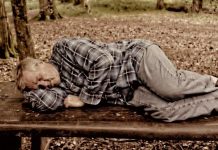Exercises for the Mind and Brain. – If you don’t use your brain to engage more fully in life, what’s the point of having a healthy brain? The joy of life comes from all the things we humans get to experience – love, learning, discovery, connection, understanding, wisdom, and curiosity. You can nourish your brain by eating well, exercising, relaxing, and sleeping well.
After that, what are you supposed to do with it? Make the most of your life by engaging fully. At work. At play. The love of your life. In order to accomplish that, you must keep your brain active. Nutritional imbalances, hormones, immune and digestive dysfunction, damage to our energy metabolism, toxins, and stress contribute significantly to mental decline with aging.
Also, there is some lack of use that contributes to it. Your muscles need to be used otherwise they will deteriorate. There is a real phenomenon called brain fitness. A study of over 450 adults over 75 years of age found that just reading, doing crossword puzzles, playing cards and board games, playing a musical instrument, or dancing can all decrease the risk of Alzheimer’s disease.5 Mental exercise is also important.






